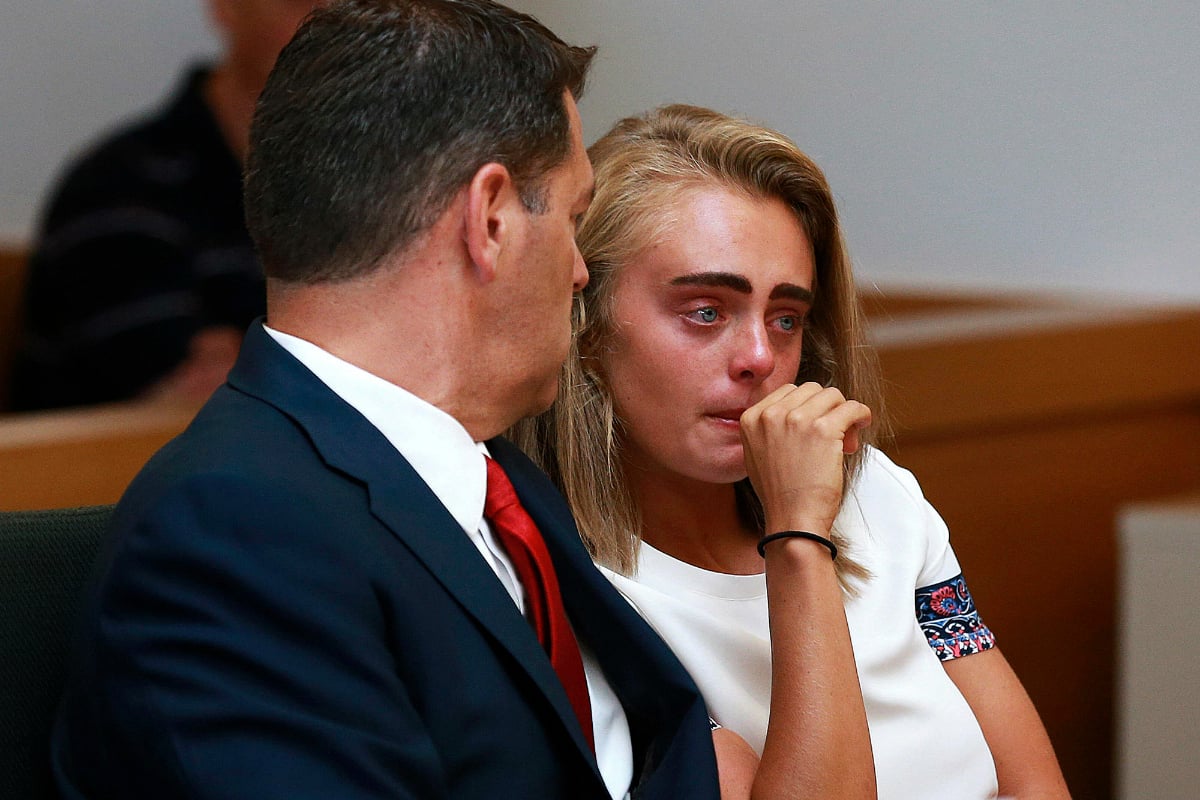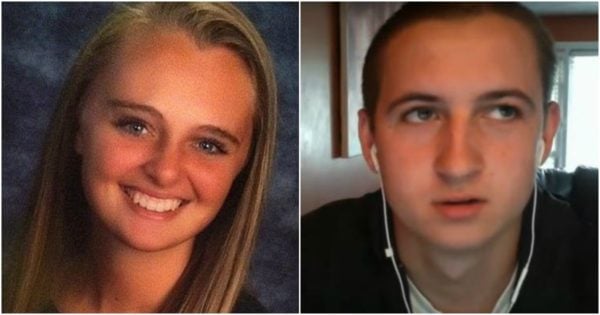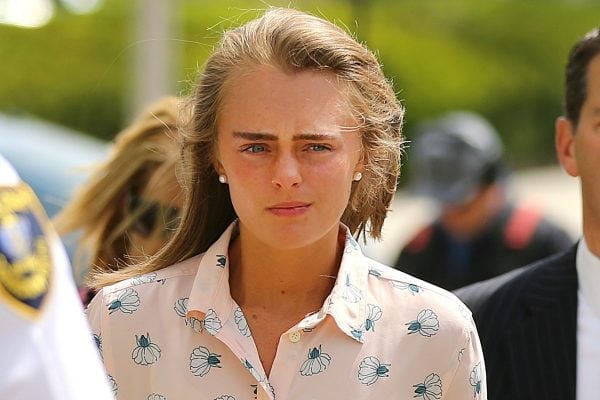
This post deals with the subject of suicide and domestic violence and may be triggering for some readers.
Michelle Carter was 20-years-old when she was convicted for involuntary manslaughter after she coerced her boyfriend Conrad Roy to end his life.
After thousands of texts between the pair were examined in court, it was determined that Carter played a significant role in Roy’s death.
“I think your parents know you’re in a really bad place. I’m not saying they want you to do it but I honestly feel like they can accept it,” she texted her 18-year-old boyfriend, Conrad Roy.
On July 13, 2014, Roy’s body was discovered in his truck in a Kmart carpark in Massachusetts.
The story of Michelle Carter and Conrad Roy is the subject of HBO’s new documentary, I Love You, Now Die: The Commonwealth vs. Michelle Carter, directed and produced by Erin Lee Carr.
Watch the trailer for HBO’s documentary ‘I Love You, Now Die’ below. Post continues after video.
The documentary is divided into two parts: the prosecution and the defence. Here are three pieces of information we learnt from the second half of ‘I Love You, Now Die’.
Conrad Roy’s family life
Mattapoisett police officer Dennis Tavares spoke during the trial, recounting attending to the Roy family household after Conrad Roy had been “physically assaulted”, subsequently seeing his father, also named Conrad Roy, be arrested.



Top Comments
She committed deliberate murder. She should rot in a dark hole for the rest of her life.
It’s insane that she is found guilty of manslaughter for text messages but his parents who failed to get him help after previous suicide attempts (that she had no pathing to do with), or the father who assaulted him, aren’t held responsible at all.
Obviously her actions were unethical but do we really hold teenagers responsible for saving other teenagers? Isn’t that the job of the adults in their lives?
I hope this gets overturned on appeal, after watching the documentary I can’t help feeling she was just as sick as he was, and made a terrible mistake when put in a situation she had no chance of managing. 20 years in jail for a suicidal teenager who failed to stop another suicidal teenager from dying is incomprehensible.
She got 15 months, not 20 years. This case is definitely a grey area but to me what clinched it was when she told him to get back into the car after he told her he was scared. Everyone in this case has to share responsibility but if she hadn't said to get back into the car and then later text that she was scared of being punished for telling him to commit suicide, I don't she would have been convicted.
But she didn't "fail to stop him" she encouraged & urged him to commit suicide.
We don’t even have evidence of that though. We actually just know he spoke to her for 40 seconds before he died. But even if she did, he still created the situation then actively got back into the car. If I tell you to drive fast you have a choice whether to do it or not, which is why I can’t get a speeding ticket for it. And she was suicidal herself. If she thought dying was a good option for her, wouldn’t she logically think it was helpful to encourage him to do the same? I just can’t see her as more culpable than his parents who didn’t know where their suicidal teen was. The legal standard is that you have to prove that he wouldn’t have died except for her actions and there’s at least a 50% chance he would have gotten back in that car himself.